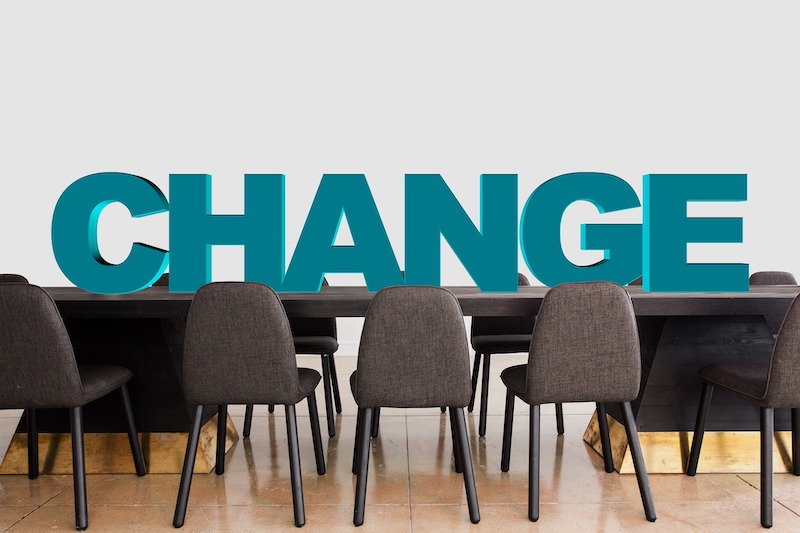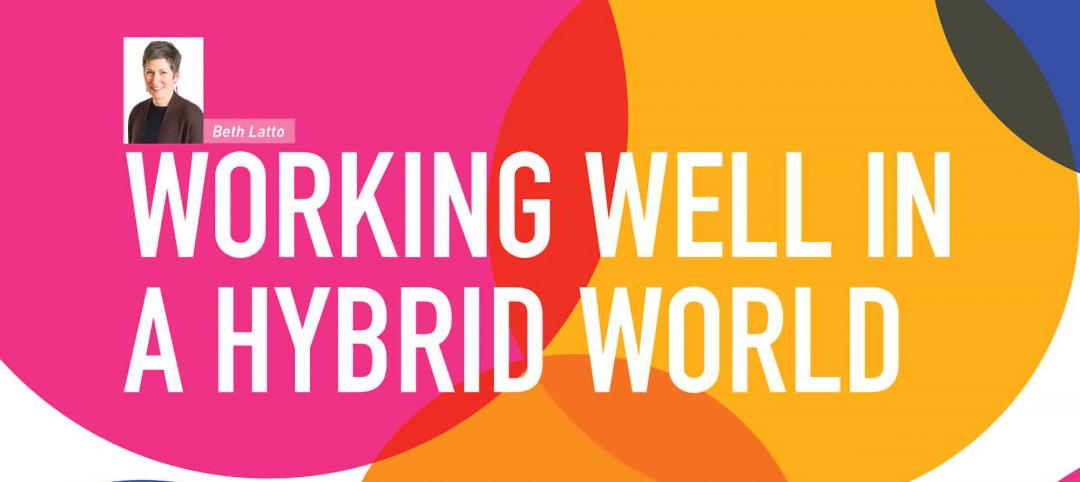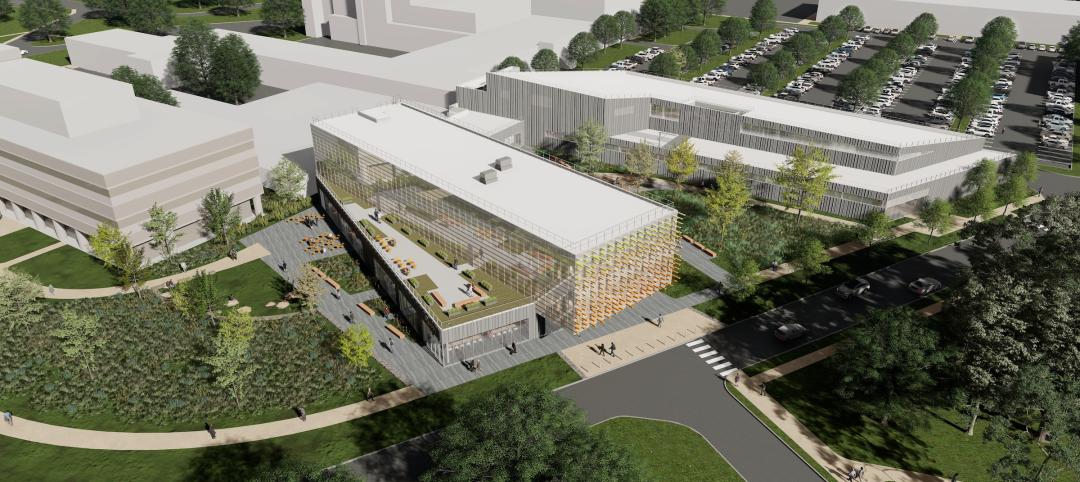The intensifying race to find and keep talent in an increasingly competitive digital business environment have enabled employees to reshape the workplace in their image, including access to a flexible work environment and schedule, overall health and well-being programs, childcare, meal services, and sustainability initiatives.
And the latest data show that employers now see that these investments are critical to their workers’ business performances.
These are among the findings from new “future of work” research, conducted by JLL and Harvard Business Review, which previewed at the World Economic Forum in Davos, Switzerland, last January.
A poll of 342 executives found that 83% agree that an attractive and flexible work environment is essential to attract and retain the talent they need to innovate and deliver business value in a competitive digital business environment and tight labor market.
More than half of the organizations these executives represent (57%) rate “human experience” as a top priority. “When we talk about human experience in the workplace, it’s really a recognition that, first and foremost employees are human beings with full lives beyond work that encompass friends, families, and varied interests, passions, and commitments,” states the authors of this research report. “So human experience efforts focus on improving how fluidly workers can integrate all of these pieces of the puzzle.”
This thinking is in line with a recent story in the New York Times that examined how wellness initiatives were ramping up in workplaces across the country. Corporate Wellness Magazine’s website also recently ran an article about how offices are merging tech and design for workplace wellness.
Over the past two years, almost one-third (32%) of JLL/Harvard survey respondents adjusted workplace design as a means to enhance the employee’s experience on the job. Another 31% adjusted workplace policies to accommodate flexible work schedules and working remotely.
And 53% of organizations plan to invest in human experience over the next two years. In that effort, more organizations are seeking their employees’ feedback and changes regarding workplace changes.
Already, more than half (53%) of respondents provide workers with the digital technology they need to work remotely or on a flexible schedule. And more than two-fifths of respondents have been customizing tis technology to employee preferences, by providing options to accommodate different people’s work styles and preferences.
A strong majority of respondents also place as a top priority the development of programs to support their employees’ health and well-being. For example, 35% of organizations are providing workplace amenities such as childcare and meal services, and 24% of organizations offer onsite recreation equipment.
Employee demand is also driving sustainability initiatives, say 55% of the organizations polled.
These efforts often result in more effective recruitment and retention. Because of their human experience initiatives, 36% of organizations report greater success retaining talent, 44% report improved employee morale, and 34% report improved productivity.
The research also found that:
•43% of organizations provide an appealing physical environment that fosters professional collaboration.
•42% offer new health and wellness benefits at little or no cost to employees.
•44% providing employees with opportunities, such as volunteer programs, to make meaningful social contributions unrelated to work.
The benefits from human experience initiatives include:
•greater brand image and recognition (29% of organizations polled).
•greater innovation (28%).
•greater visibility in the market and community (28%).
•greater customer satisfaction (27%).
•better relationships with suppliers and partners (21%).
•greater profitability (17%).
Related Stories
Sustainability | Jul 1, 2024
Amazon, JPMorgan Chase among companies collaborating with ILFI to advance carbon verification
Four companies (Amazon, JPMorgan Chase, JLL, and Prologis) are working with the International Living Future Institute to support development of new versions of Zero Carbon Certification.
Multifamily Housing | Jun 14, 2024
AEC inspections are the key to financially viable office to residential adaptive reuse projects
About a year ago our industry was abuzz with an idea that seemed like a one-shot miracle cure for both the shockingly high rate of office vacancies and the worsening housing shortage. The seemingly simple idea of converting empty office buildings to multifamily residential seemed like an easy and elegant solution. However, in the intervening months we’ve seen only a handful of these conversions, despite near universal enthusiasm for the concept.
Adaptive Reuse | Jun 13, 2024
4 ways to transform old buildings into modern assets
As cities grow, their office inventories remain largely stagnant. Yet despite changes to the market—including the impact of hybrid work—opportunities still exist. Enter: “Midlife Metamorphosis.”
Mass Timber | Jun 10, 2024
5 hidden benefits of mass timber design
Mass timber is a materials and design approach that holds immense potential to transform the future of the commercial building industry, as well as our environment.
Office Buildings | Jun 6, 2024
HOK presents neurodiversity research and design guidelines at SXSW 2024
Workplace experts share insights on designing inclusive spaces that cater to diverse sensory processing needs.
Office Buildings | Jun 3, 2024
Insights for working well in a hybrid world
GBBN Principal and Interior Designer Beth Latto, NCIDQ, LEED AP, ID+C, WELL AP, share a few takeaways, insights, and lessons learned from a recent Post Occupancy Evaluation of the firm's Cincinnati, Ohio, office.
MFPRO+ News | Jun 3, 2024
New York’s office to residential conversion program draws interest from 64 owners
New York City’s Office Conversion Accelerator Program has been contacted by the owners of 64 commercial buildings interested in converting their properties to residential use.
Products and Materials | May 31, 2024
Top building products for May 2024
BD+C Editors break down May's top 15 building products, from Durat and CaraGreen's Durat Plus to Zurn Siphonic Roof Drains.
Urban Planning | May 28, 2024
‘Flowing’ design emphasizes interaction at Bellevue, Wash., development
The three-tower 1,030,000-sf office and retail development designed by Graphite Design Group in collaboration with Compton Design Office for Vulcan Real Estate is attracting some of the world’s largest names in tech and hospitality.
Laboratories | May 24, 2024
The Department of Energy breaks ground on the Princeton Plasma Innovation Center
In Princeton, N.J., the U.S. Department of Energy’s Princeton Plasma Physics Laboratory (PPPL) has broken ground on the Princeton Plasma Innovation Center (PPIC), a state-of-the-art office and laboratory building. Designed and constructed by SmithGroup, the $109.7 million facility will provide space for research supporting PPPL’s expanded mission into microelectronics, quantum sensors and devices, and sustainability sciences.

















